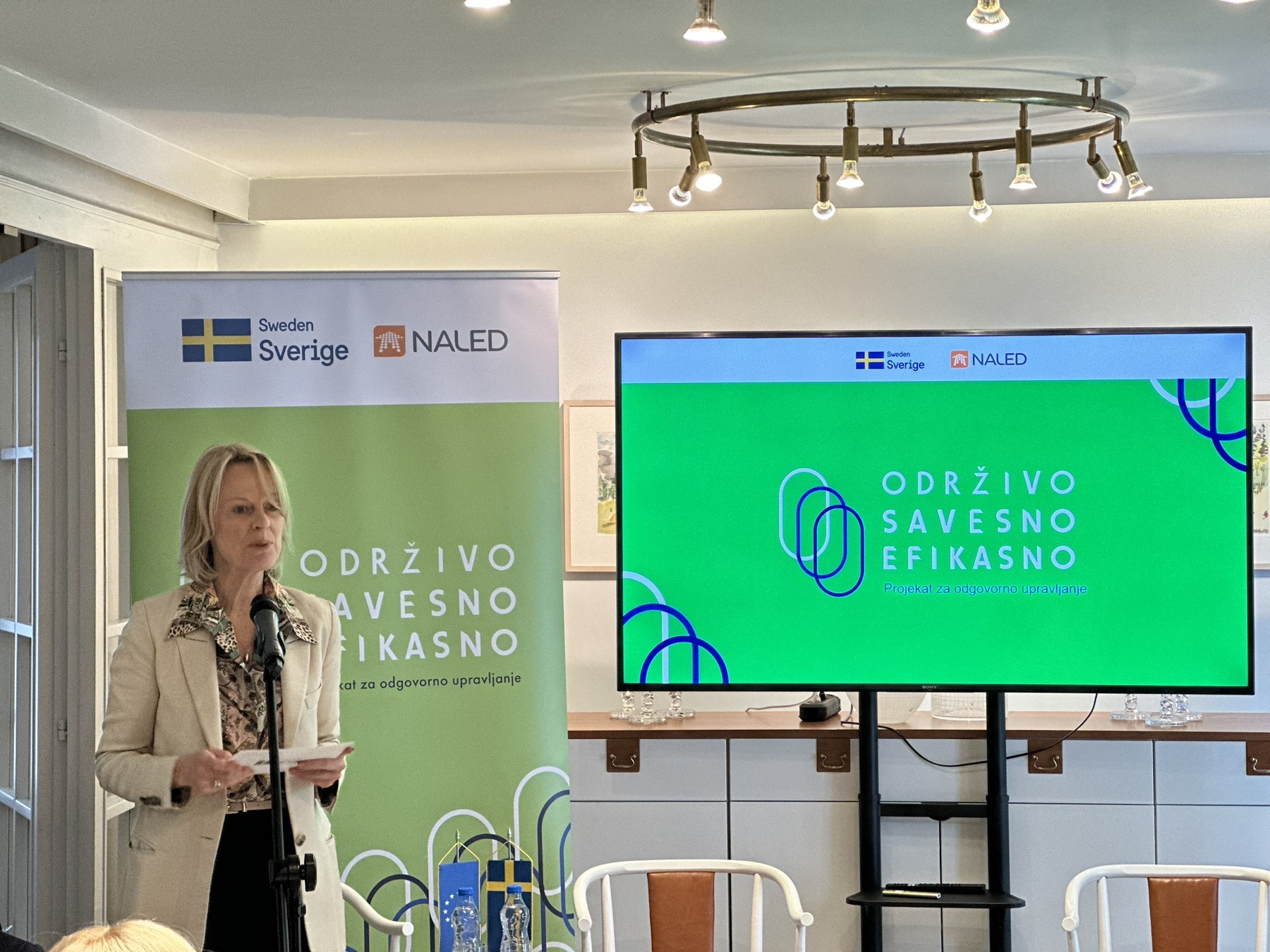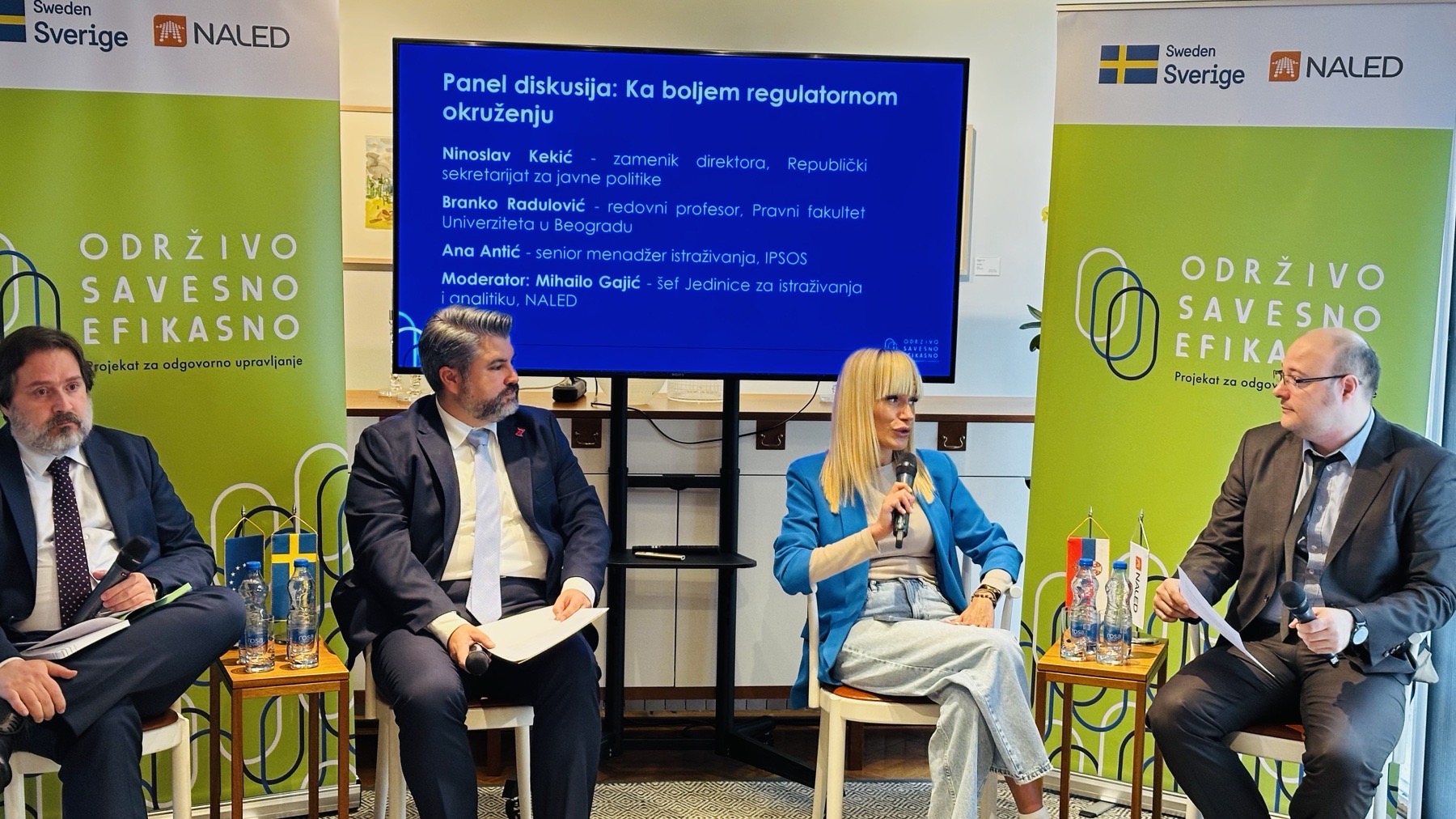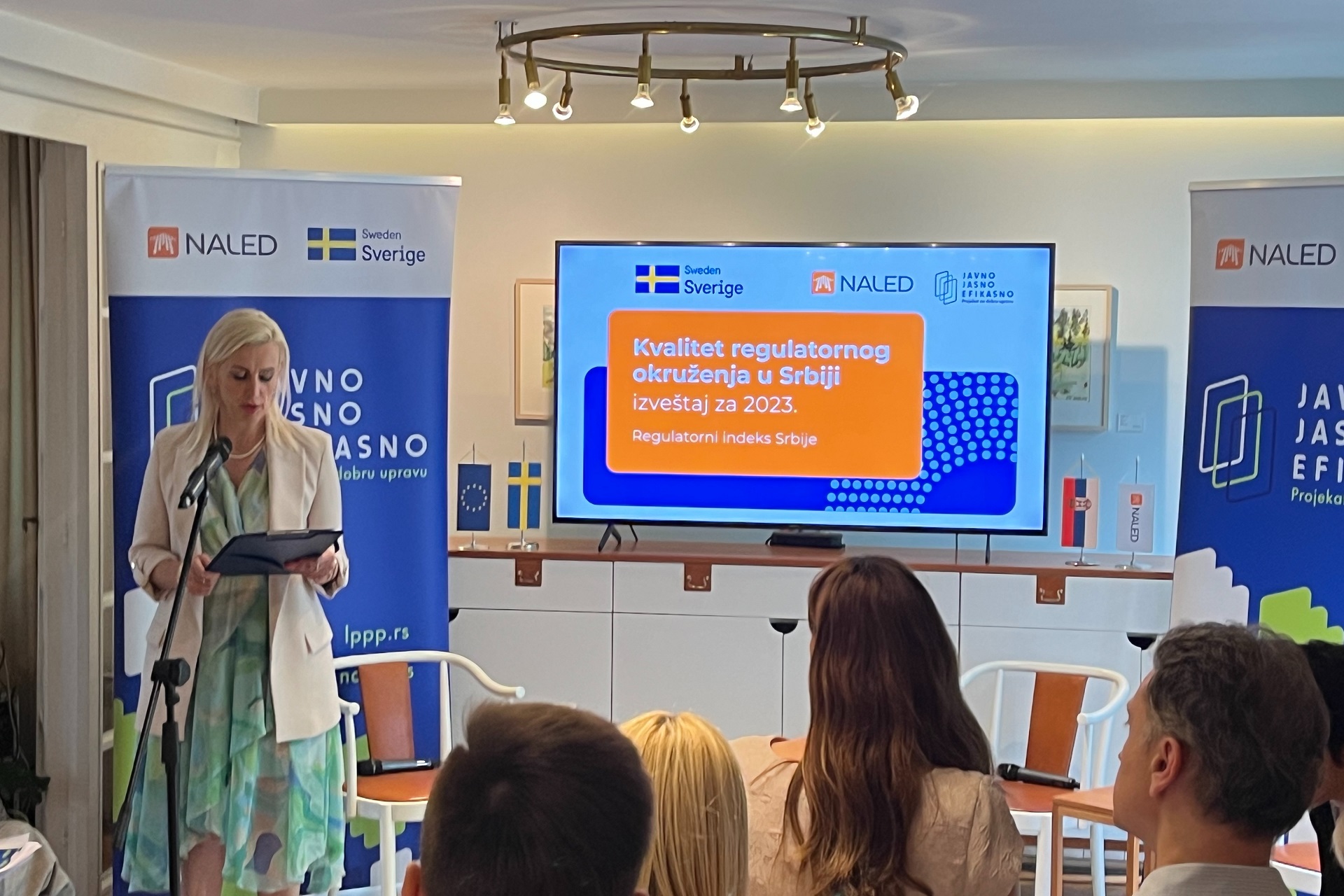In 2025, better planning and timely adoption of regulations are needed
Political developments, elections at the end of 2023, and a government in a caretaker mandate led to 50% of regulatory plans and obligations remaining unfulfilled last year, according to the latest data from the Regulatory Index of Serbia (RIS). As a result, the RIS score for 2024 dropped by five percentage points compared to the previous year, bringing the overall index value to 50 out of 100, it was announced at the official presentation of the findings held at the residence of the Embassy of the Kingdom of Sweden.
The Regulatory Index of Serbia (RIS) is a tool developed by NALED in 2012 to monitor whether the Government adopts regulatory amendment plans, considers business sector feedback, adopts by-laws on time, and evaluates the administrative burden on businesses—based on six key components.
The poor overall result last year was influenced by weak legislative planning, including the absence of the Government Work Plan for the second consecutive year, and slower regulatory adoption. Throughout the year, the National Assembly held only eight sessions, and as many as 54 laws were adopted in a single day (November 27, 2024), causing institutional capacity overload within very short deadlines.
“RIS (Regulatory Index of Serbia) monitors more than 200 laws and provides insights into the predictability and stability of Serbia’s regulatory framework. Future reports will emphasize alignment with EU directives, providing valuable data for assessing the European integration process. Dialogue is key, and input from the business community and civil society is essential for improving transparency and accountability in the regulatory environment,” stated H.E. Charlotte Sammelin, Ambassador of the Kingdom of Sweden to Serbia.
For over a decade, RIS (Regulatory Index of Serbia) and NALED’s Regulatory Barometer have monitored whether key by-laws—essential for the implementation of laws—are adopted on time and within the prescribed deadlines. Timeliness in law implementation and predictability in the regulatory process remain the weakest components, primarily due to the continued failure to adopt necessary by-laws. Of 277 required by-laws for 52 key business-related laws, only 22 (8%) were adopted, and just six of those within the legal deadline. The average delay was as much as 303 days.
The most significant drop compared to the previous year was recorded in the area of public involvement in drafting regulations. While over 80% of laws underwent public consultation in 2023, this number fell to around 60% in 2024.
“To enhance transparency in the legislative process and improve the predictability of the regulatory environment, it is necessary to establish a better rhythm that allows more space for planning legislative activities, public-private dialogue, and timely adoption of by-laws. This would especially help well-drafted laws, such as the Law on Social Entrepreneurship, to reach their full potential in practice. Together with our partners and members, we are ready to support institutions in these efforts through initiatives like the Economic Caucus, which contributes to higher quality dialogue in the parliament,” emphasized Violeta Jovanović, Executive Director of NALED.
On a positive note, the Government showed progress this year in the quality of the laws adopted and in the responsiveness of institutions to freedom of information requests, making operational data more publicly accessible. Ministry websites became more informative, and in 80% of cases, responsible authorities responded to FOI requests within legal deadlines.
The development of RIS (Regulatory Index of Serbia) has been supported for the second year in a row by the Government of Sweden through the project “More Efficient Public Procurement and Sustainable Supply Chains for Improved Competitiveness,” implemented by NALED.






